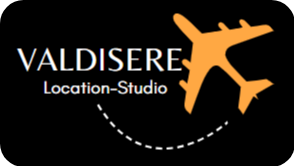If you have ever noticed that one dentist has dds after their name while another has DMD, you might have wondered if there is an important difference between these two titles. The answer is not as important as you might think, and the difference largely comes down to tradition rather than any actual differences in their education or qualifications.
In a nutshell, DDS stands for Doctor of Dental Surgery and DMD stands for Doctor of Dental Medicine. Both have completed rigorous dental schooling and are qualified to provide excellent care for your oral health. The only difference between the two is that some dental schools choose to award their graduates with DDS or DMD, which is a matter of preference more than anything else.
DDS is a real-time data-communications system that provides a publish-subscribe communication architecture. It is used for high-performance, high-reliability applications such as aerospace and defense, air-traffic control, medical devices, autonomous vehicles, robotics, simulation and testing, power generation, and transportation systems. It is based on the Object Management Group (OMG) middleware standard, called Data Distribution Service (DDS).
During the disability determination process, DDS staff will gather information from all available sources. They will then use a five-step sequential evaluation to determine whether or not you meet the SSA definition of disability.
The first step is to review the evidence in your file. This includes your work history, your physical and psychological impairments, and the effects of your condition on your ability to do daily activities. If the information you provide is insufficient, staff will arrange a consultative exam to gather additional details. This exam will be paid for by DDS.
After the medical review, staff at DDS will decide whether or not you are disabled. The decision will be based on a comparison of your medical condition and the limitations you have to those of other people who are similar in age, education, and experience. This will help them determine whether or not you can perform any type of work.
In some cases, DDS will require a consultative exam with your treating physician or other doctors who have treated you in the past. The purpose of this is to obtain additional medical evidence to support the disability determination. This evidence will be combined with the objective medical evidence from other sources. The trained staff at the DDS will then make a decision on your claim.
DDS uses a system of rules and standards to ensure that all claims are processed fairly. In addition, it is a requirement that all DDS personnel follow the same guidelines in evaluating each claim. This includes maintaining a strict separation of personal and professional judgments.
There are many different types of DDS applications, ranging from simple data transfers to complex distributed systems. DDS has several application programming interfaces (APIs) and is implemented in various languages, including Ada, C++, C#, Java, Scala, Python, and Lua. In addition, it is supported by open source and commercial software providers.
